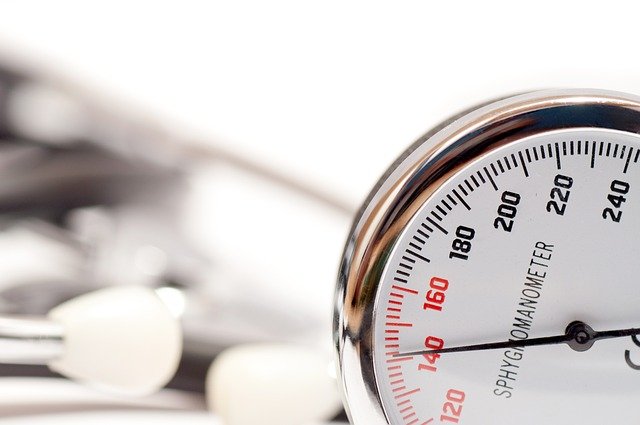
High blood pressure is a big risk factor for heart disease and stroke.
This silent killer can hurt your health without obvious signs or symptoms.
When blood pressure stays high over time, it can damage the body and cause many complications.
Here are the 8 common complications of high blood pressure everyone should know:
Heart Attack: Heart attack can be a common result from high blood pressure.
When the flow of oxygen-rich blood to a section of heart muscle suddenly becomes blocked, the heart doesn’t get oxygen and a heart attack happens.
There are some symptoms of a heart attack you should pay attention to, including chest pain or discomfort, upper body discomfort, and shortness of breath.
Heart Failure: Heart failure is a condition when the heart can’t pump enough blood to meet the body’s needs.
Common signs of heart failure are shortness of breath or trouble breathing, feeling tired soon during exercise, and swelling in the ankles, feet, legs, abdomen, and veins in the neck.
Stroke: Stroke is another common consequence of high blood pressure.
When the flow of oxygen-rich blood to a portion of the brain is blocked, a stroke occurs.
The symptoms of a stroke include sudden onset of weakness; paralysis or numbness of the face, arms, or legs; trouble speaking or understanding speech; and trouble seeing.
Peripheral Artery Disease: Often known as PAD, this disease means plaque builds up in arteries and affects blood flow in the head, organs and limbs. PAD usually affects arteries in the lges.
When people have PAD, the most common signs are pain, cramping, numbness, aching, or heaviness in the legs, feet, and buttocks after walking or climbing stairs.
Aneurysms: an aneurysm is a balloon-like bulge in an artery. Arteries are blood vessels that carry oxygen-rich blood to your body.
Arteries have thick walls to withstand normal blood pressure. But in high blood pressure, the force of blood pushing against the weakened or injured walls and cause an aneurysm.
Aneurysms develop and grow for years without causing signs or symptoms until they rupture, grow large enough to press on nearby body parts, or block blood flow.
The conditions often can be fatal.
Chronic Kidney Disease: this condition means your kidneys are damaged and cannot filter blood the way they should.
High blood pressure can cause chronic kidney disease when blood vessels become narrow in the kidneys.
Changes in cognitive functions: Recent studies show that higher blood pressure may lead to memory loss.
It may also affect your language abilities, such as finding words and focusing during conversations.
Eye Damage: High blood pressure can harm your eyes. When blood vessels in the eyes burst or bleed, you may suffer from vision damage or blindness.
Copyright © 2018 Knowridge Science Report. All rights reserved.



